Oxford Colloquium
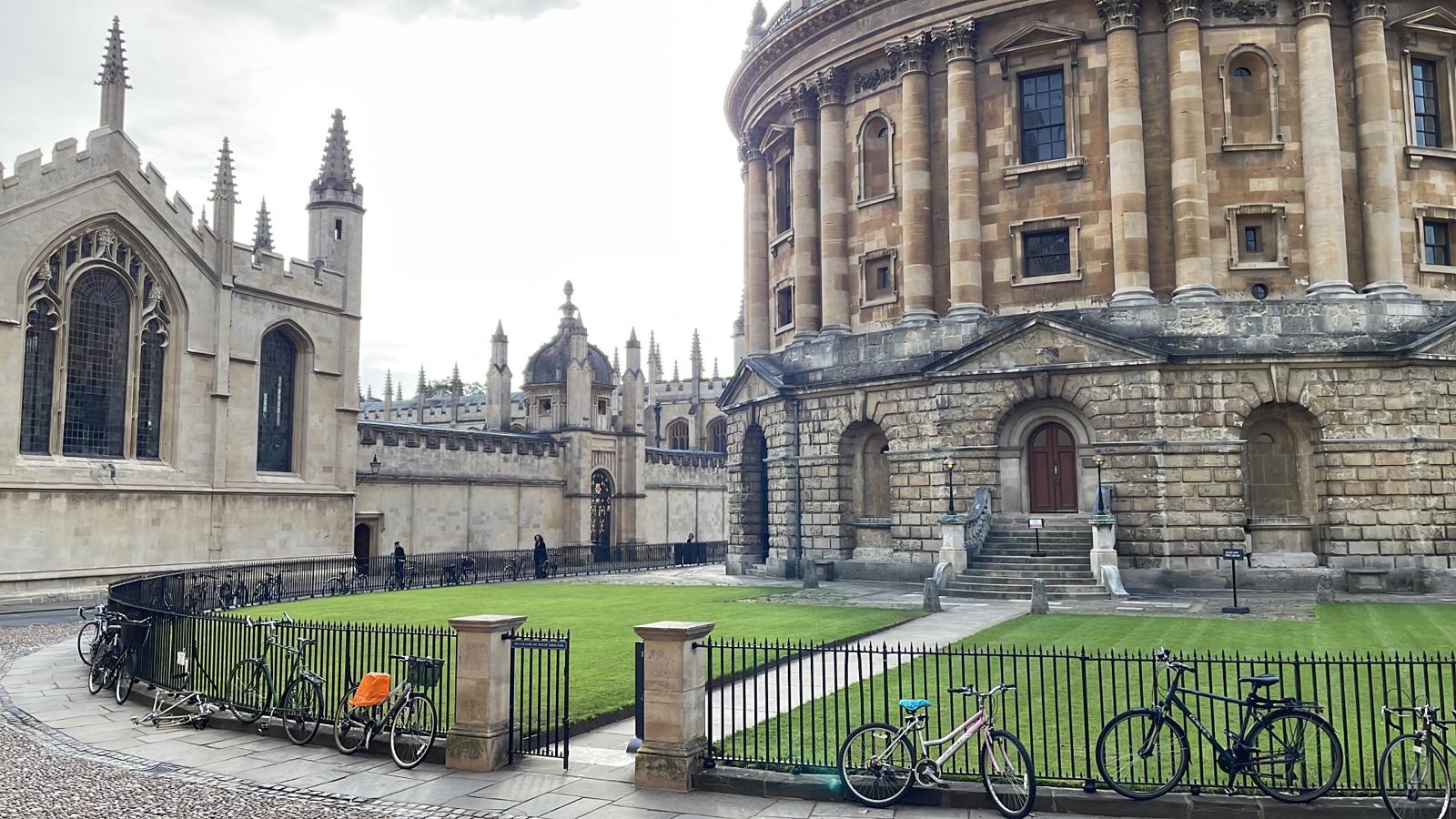
Why Middle-Sized Matters to Science, Theology and Metaphysics
May 1 – 3, 2024
The Civitas Institute at UT Austin and The Centre for Theology, Law, and Culture in Oxford are bringing together theologians, scientists and philosophers in a Colloquium to reflect on: the reality of Middle-Sized Things, such as human beings and animals; why Middle-Sized Things matter for science, philosophy and religion; and what kind of philosophy best upholds the reality, agency and autonomy of Middle-Sized Things. This Colloquium will be taking place at various locations in Oxford. On Day 1 (1st May), there will be Public Lectures at Pusey House, Oxford (from 3pm); on Day 2 (2nd May), a workshop spanning topics in physics and philosophy of mind at All Souls College, Oxford; on Day 3 (May 3rd), a workshop covering issues in Metaphysics and Science & Religion at St Cross College / Pusey House, Oxford.
Funding:
This Colloquium is being supported by a grant from The Civitas Institute at the University of Texas at Austin, in addition to a grant from the Issachar Fund and the financial support of The Centre for Theology, Law, and Culture at Oxford.
Attendance:
The Public Lectures at Oxford are open to everybody, but attendance at the Workshops is by invitation only. However, we are investigating the possibility of a live video link to all of the events. If you are interested in joining us online, please get in touch with Jonathan Price (below).
Organisers
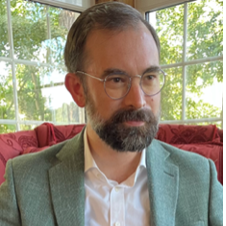
Visiting Scholar in the Faculty of Philosophy, Oxford
Research Assistant Professor in Philosophy, Durham
William Simpson is a philosopher and scientist. He holds a Ph.D. in philosophy from Cambridge and a Ph.D in physics from St Andrews. He is the author of Hylomorphism (Cambridge, 2023) and Surprises in Theoretical Casimir Physics (Springer, 2014). He is co-editor, with Robert Koons and Nicholas Teh, of Neo-Aristotelian Perspectives in Contemporary Science (Routledge 2017); and co-editor, with Robert Koons and James Orr, of Neo-Aristotelian Metaphysics and the Theology of Nature (Routledge 2021). In 2020 he received an Expanded Reason Award for his work on causal powers, hylomorphism and the metaphysics of quantum mechanics. In 2021, he was awarded the Cardinal Mercier Prize in Philosophy.
You can read more about his work on his personal website. The Colloquium develops a theme in his recent lecture Why Middle-Sized Matters: The Limits of Quantum Mechanics, given at the St Cross Centre for the History and Philosophy of Physics at Oxford in 2023.
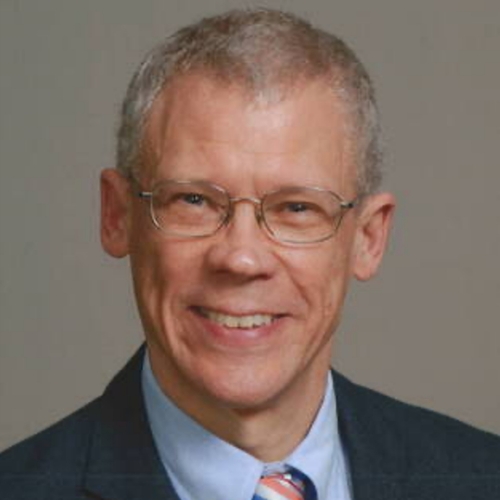
Professor of Philosophy, UT Austin
Civitas Institute Faculty Fellow, UT Austin
Robert Koons is a philosopher interested in applying an Aristotelian framework to contemporary philosophical problems. He holds an M.A. in Philosophy and Theology from the University of Oxford and a Ph.D. in Philosophy from the University of California at Los Angeles. He is (co-)author of five books, including: Realism Regained (Oxford University Press, 2000) and The Atlas of Reality: A Comprehensive Guide to Metaphysics, with Timothy H. Pickavance (Wiley-Blackwell, 2017). He is the co-editor (with George Bealer) of The Waning of Materialism (Oxford University Press, 2010), (with Nicholas Teh and William Simpson) of Neo-Aristotelian Perspectives on Contemporary Science (Routledge, 2018), and (with William Simpson and James Orr) of Neo-Aristotelian Metaphysics and the Philosophy of Nature (Routledge, 2021). His forthcoming books include: Is Thomas Aquinas’s Philosophy of Nature Obsolete? (St. Augustine Press) and Classical Theism (Routledge), co-edited with Jonathan Fuqua.
You can read more about his work on his personal website. Recently, he has been working on an Aristotelian interpretation of quantum theory, which he will be sharing at this Colloquium.
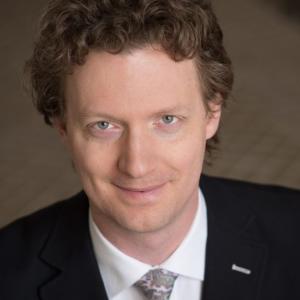
Matraszek Fellow of Pusey House
Pusey Fellow of St Cross College, Oxford
Jonathan Price has research interests in law, theology and philosophical anthropology. He holds a Ph.D. from the Leiden University Law School (NL) and is pursuing a DPhil in Law at the University of Oxford. Jonathan runs the Centre for Theology, Law and Culture at Pusey House, Oxford, and is assisting William Simpson and Robert Koons in the organisation of this conference.
You can find out more about about the Centre for Theology, Law and Culture on their website.
The Speakers

Senior Lecturer, University of St Andrews
Metaphysics, Philosophical Logic, Philosophy of Religion
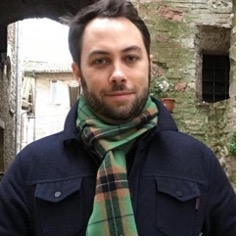
Frederick Copleston Senior Research Fellow in Philosophy and Theology, University of Oxford
Philosophical Anthropology, Metaphysics, Philosophy of Religion, Medieval Philosophy and Theology
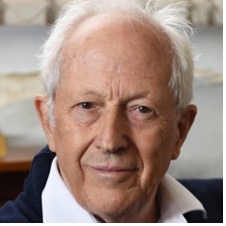
Emeritus Distinguished Professor of Complex Systems in the Department of Mathematics and Applied Mathematics at the University of Cape Town.
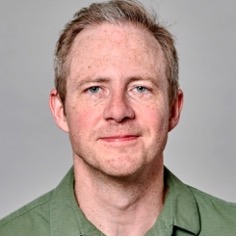
Professor of Philosophy, Durham University
Metaphysics, Philosophy of Mind, Philosophy of Religion

Andreas Idreos Professor of Science and Religion, University of Oxford
Theology and the Physical Sciences, Modern views of the Bible, Miracles, Divine Action, The Environmental Crisis.
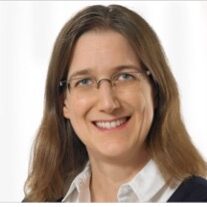
Professor of Philosophy, University of Bern
Metaphysics, Philosophy of science, and Philosophy of Mind

Professor of Philosophy, UT Austin
Philosophical logic, Metaphysics, Philosophy of Mind, Philosophy of Religion

Professor of Philosophy, UC Davis
Metaphysics, Philosophy of Physics, Philosophy of Mind, General Philosophy of Science

Professor of Philosophy, Indiana University
Metaphysics, Philosophy of Mind, and Philosophy of Religion

Research Associate, Faraday Institute for Science and Religion
Logic, Mereology, Scientific Metaphysics, Philosophy of Religion


Barry Fellow of Pusey House and Pusey Fellow of St Cross, University of Oxford
Philosophy of Law

Junior Research Fellow and Lecturer in Philosophy, University of Oxford
Ethics, Metaphysics, Philosophy of Physics, Philosophy of Religion

Senior Faculty Researcher, University of Navarra
Philosophy of Mind/Cognitive Science, Philosophy of Physics, Complex Systems, Philosophy of Cosmology

Research Assistant Professor in Philosophy, Durham & Visiting Scholar in Philosophy, University of Oxford
Philosophy of Science, Philosophy of Physics, Metaphysics, Philosophy of Mind

Prior of Blackfriars, Cambridge and Lector at Blackfriars, Oxford
Philosophy of Physics, Philosophy of Religion
Chairs and Commentators
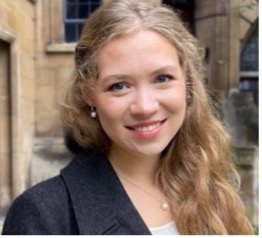
DPhil student in Science and Religion at Oxford and joint-winner of the 2023 Du Châtelet Prize in Philosophy of Physics.
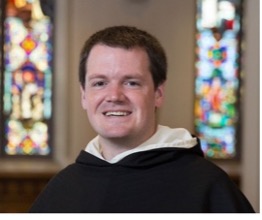
Thomas Davenport
Lecturer in the Faculty of Philosophy at the Pontifical University of St. Thomas Aquinas in Rome
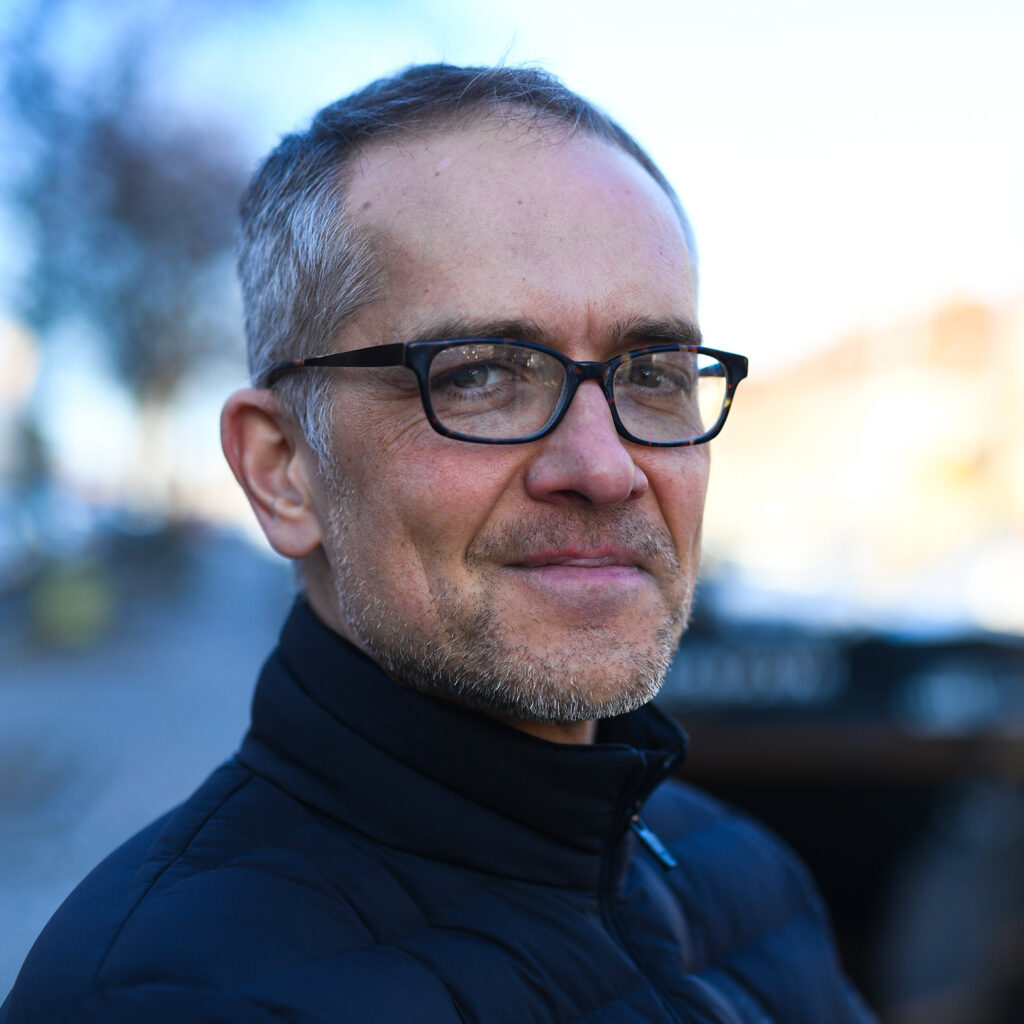
Hans Halvorson
Stuart Professor of Philosophy, Princeton University
Mathematical Logic, Philosophy of Physics (joining online)
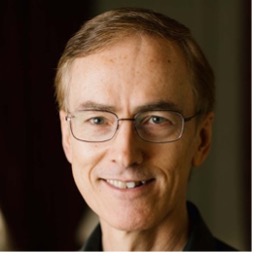
Timothy O’Connor
Professor of Philosophy, Indiana University
Metaphysics, Philosophy of Mind, and Philosophy of Religion

Jonathan Price
Barry Fellow of Pusey House and Pusey Fellow of St Cross, University of Oxford
Philosophy of Law

Professor Emeritus in Philosophy at Central European University, Vienna, and a Senior Research Fellow at Blackfriars Hall, Oxford.
Early Modern Philosophy, History of Philosophy, Metaphysics, Philosophy of Mind and Philosophy of Religion.
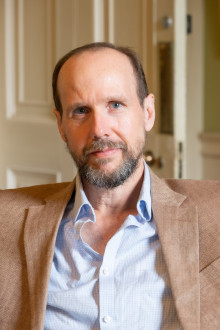
Professor of Metaphysics in the Faculty of Philosophy and a Fellow and Tutor in Philosophy at Oriel College, Oxford.
Early Modern Philosophy, Metaphysics

William Simpson
Research Assistant Professor in Philosophy, Durham & Visiting Scholar in Philosophy, University of Oxford
Philosophy of Science, Philosophy of Physics, Metaphysics, Philosophy of Mind

Professor of Physics at the University of Oxford and Fellow of Exeter College, Oxford.
Fundamental Physics, Quantum Information
Public Lectures and a Discussion
Pusey House & St Cross College, St Giles, Oxford
Wednesday May 1, 2024 (3-5.20pm, break included)
Cosmologist George Ellis and the philosopher Robert Koons will outline their ‘big pictures’ of the natural world to a general audience and discuss the place of ‘middle-sized things’ (such as animals and human beings) within it. These talks will be followed by an open conversation as well as Q&A from the audience.
Professor George Ellis is a leading cosmologist and an outspoken advocate of ‘strong emergence’ in physics, chemistry and biology. He opposes the (micro)physical reductionism which has characterised much of philosophy of physics, as well as the infamous “many worlds” interpretation of quantum mechanics. George will be discussing how the Universe seems purposeless if one looks at it on either very large or very small scales, but how an ‘open systems’ approach to physics allows middle-sized things to make a causal difference, restoring purpose and meaning to our view of the cosmos.
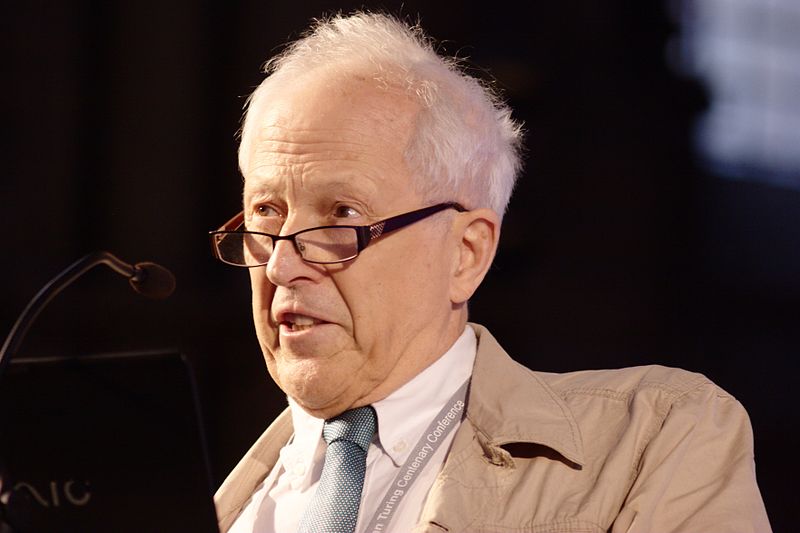
Professor Robert Koons is a philosopher and a prominent proponent of Aristotle’s doctrine of hylomorphism, which conceives the world as containing different, irreducible substances which have causal powers to act in the world according to their natures (including chemical and biological substances). Recently, he has been applying hylomorphism to the philosophy of mind and the interpretation of quantum physics. Rob will be arguing that the Aristotelianism of the scholastic period provides an attractive foundation for human values, and that a re-thinking of the philosophy of the natural sciences in Aristotelian terms is not only desirable but feasible.
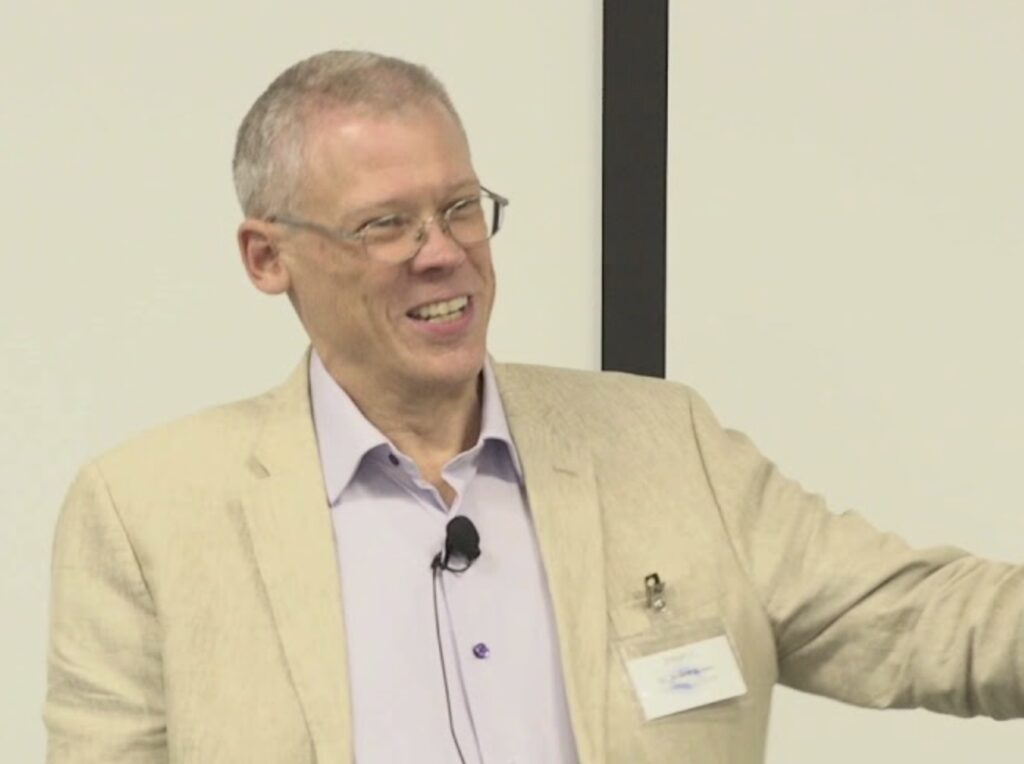
Two-Day Academic Workshop
A collection of academic papers about the reality of middle-sized things, such as plants, animals and people, why middle-sized things matter for science, theology and metaphysics, and what metaphysics best supports the reality and significance of middle-sized things

Thursday, May 2, 2024 – All Souls College, Oxford
Session 1 – Middle-Sized Things in Physics
- George Ellis – Aristotelian Causation characterises why specific things happen
- Robert Koons – Contextual Emergence, Travelling Forms, and Cosmic Substances: Evaluating the Options for Quantum Hylomorphism
- Alyssa Ney – Middle-Sized Things in the Wave Function
- Emily Qureshi-Hurst – Many Worlds and Much Trouble: Problems raised by the Everett Interpretation for Middle-Sized beings
Session 2 – Middle-Sized Things in Philosophy of Mind
- Timothy O’Connor – Consciousness and the Significance of Middle-Sized Things
- Philip Goff – Pan-Agentialism and the Mystery of Psycho-Physical Harmony
- Daniel De Haan – Why Middle-Sized Causal Powers Matter for Scientific Experiments
Session 3 – Panel Discussion
Speakers: William Simpson (intro), George Ellis, Robert C. Koons, Alyssa Ney, Emily Qureshi-Hurst, Timothy O’Connor, Philip Goff, and Daniel De Haan.
Chairs & Commentators: Hans Halvorson, William Simpson, Howard Robinson, Jonathan Price, Mark Harris, Andrew Steane.
Friday May 3, 2024 – Pusey House & St Cross College, Oxford
Session 4 – Middle-Sized Things in Metaphysics
- Vera Hoffmann-Kolss – Higher-Level Causation, Causal Models, and the Proportionality Constraint
- Aaron Cotnoir – Measuring Naturalness? Moving away from a metaphysics of building, grounding, and fundamentality
- John Pemberton – (Middle-Sized) Things – an acting-arrangement account
- Christopher Oldfield – Hylomorphism and the Inverse Special Composition Question
Session 5 – Middle-Sized Things in Science and Religion
- Mark Harris – Arthur Peacocke’s Emergent Theology: Implications for a Theology of Condensed Matter Physics
- Javier Sánchez-Cañizares – Causal Physical Constraints: An Epistemic Defense of Higher-Order Causality
- Robert Verrill – Christianity and Quantum Monism: addressing the threat
Session 6 – Panel Discussion
Speakers: William Simpson (intro), Vera Hoffmann-Kolss, Aaron Cotnoir, John Pemberton, Christopher Oldfield, Mark Harris, Javier Sánchez Cañizares, Robert Verrill, and Robert Koons (synopsis)
Chairs & Commentators: Timothy O’Connor, William Simpson, Thomas Davenport, Marta Bielinska, Gonzalo Rodriguez-Pereyra.
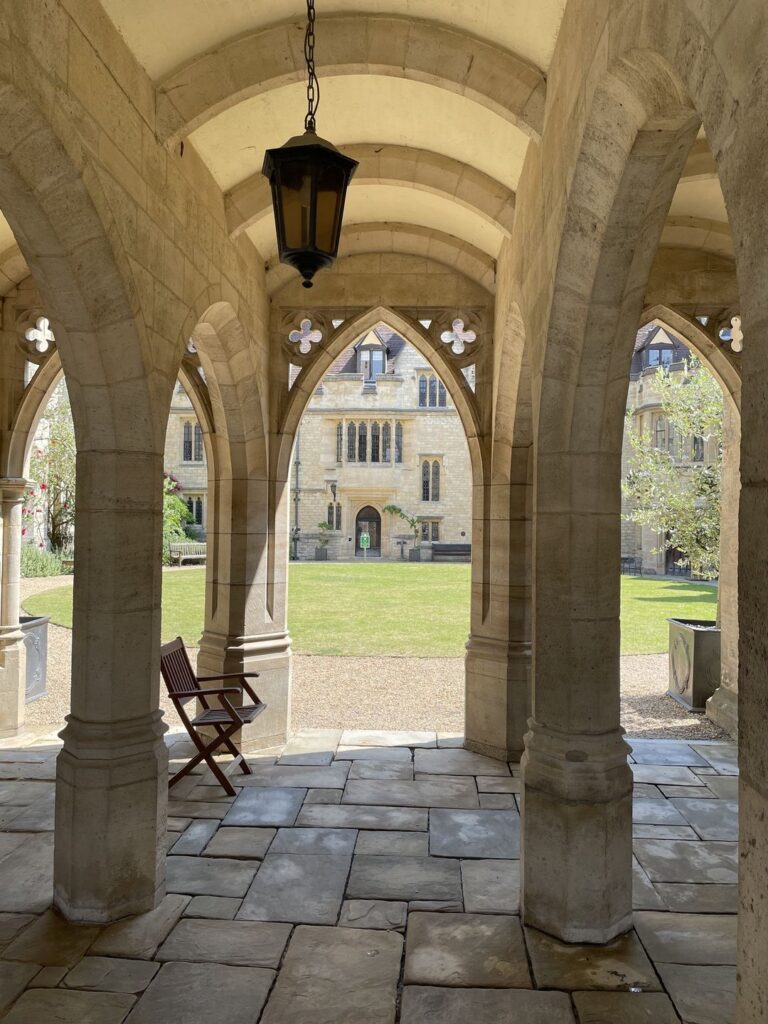
ABSTRACTS FOR PUBLIC LECTURES
George Ellis
How the Science of the Middle-Sized Restores Purpose
I will discuss how the universe can seem a purposeless and amoral place if one looks at it exclusively on very large or small scales. Indeed, many scientific specialists of the very large or very small have claimed that there is no purpose in the universe. Paradoxically, however, they are ignoring the nature of their own lives on the middle-sized scale at which they exist; more specifically, how their existence within the physical world as ‘open systems’ enables purpose, meaning, and ethics to be effective in causing physical outcomes. The middle-sized scale is particularly important for biology where meaning and function are often denied due to focussing on the molecular scale alone.
Robert Koons
Is Aristotle’s Philosophy of Nature Scientifically Obsolete?
Aristotle’s philosophy of nature dominated much of the world’s science from late antiquity until the 17th century and beyond. In this Aristotelian world, human beings and the middle-sized objects that we perceive and manipulate were among the first-class citizens of nature, imbued with real causal powers and potentialities. The period of “classical” physics (from Galileo to Rutherford) seemed to eliminate the need for key elements of Aristotle’s scheme, including substantial forms for composite objects, natural powers and potentialities, and teleology. I argue that the Quantum Revolution has altered the epistemic landscape in ways that re-open questions of natural philosophy that have long been taken to be settled, laying the foundation for a neo-Aristotelian or “hylomorphic” interpretation of quantum theory. This interpretation successfully bridges the gap between the domain of quantum entities and the world of actual experiments and observations, and, as a further bonus, reconciles what Wilfred Sellars called the manifest image of ordinary human life with our best scientific image of nature.
ABSTRACTS FOR WORKSHOP
Aaron Cotnoir
Measuring Naturalness? Moving away from a metaphysics of building, grounding, and fundamentality
The notion of metaphysical naturalness is often used to characterize a special class of entities to do certain theoretical work. Naturalness is often thought to be a gradable notion utilizing a scale of degrees. In this paper, I use Lewis’s (1983b) approach to naturalness as a foil, highlighting problems that any theory of naturalness needs to avoid: (i) the Problem of Definitional Precision; (ii) the Problem of Too Many Scales; (iii) the Problem of Ratios. I use insights from Representational Theory of Measurement (RTM) to solve these problems. Along the way, I argue that naturalness theorists should reject definitional complexity accounts, and any account that ties naturalness to the fundamental level. Rather they should treat relative naturalness as primary. I close by suggesting an approach to naturalness that is more holistically motivated and compatible with emergence.
Daniel De Haan
Why Middle-Sized Causal Powers Matter for Scientific Experiments
Although the discoveries and purported theoretical implications of scientific experiments are concerned with microscopic, middle-sized, and even cosmic-scale phenomena, contemporary philosophers who are realists tend to admit ‘fundamental’ reality only to microscopic or cosmic reality, while demurring the fundamentality of middle-sized things. In this talk, I aim to defend the fundamentality of (some) middle-sized things by arguing that middle-sized beings like ourselves, who explore the world through scientific enquiry, could not discover the existence and causal powers of microscopic or cosmic-sized things if they did not exercise irreducible, middle-sized causal powers. Such causal powers are deployed by scientists when they conduct controlled scientific experiments, for example, or when they fabricate the middle-sized instruments they employ in their experiments (such as lasers, reactors, particle colliders, and interferometers). If scientists and their middle-sized instruments didn’t have any fundamental, middle-sized causal powers, then they would not be able to engage in scientific experimentation, and hence they would not be able to ascertain the existence and causal powers of either micro-physical or cosmic-sized phenomena. In short, I will argue that middle-sized causal powers are a condition of the possibility of scientific inquiry.
George Ellis
Aristotelian Causation characterises why specific things happen
In my public lecture, I discuss how the universe can look purposeless if one looks at it on either very large or very small scales, but I will argue that the middle-sized things like living beings exist within the physical world as ‘open systems’, and explain how this enables purpose, meaning, and ethics to be effective in causing physical outcomes. In this paper, I will explain the way that this happens by characterising how Aristotelian causation, updated to take more recent discoveries into account, relates to upwards and downwards causation and thereby to the nature of effective causal closure. This occurs on middle-sizes in physical terms, where emergent biological function and agency is possible, as well as in society, and is the basis of ethical behaviour – which does not exist as a category, as far as physics or microbiology is concerned. We crucially need scientists and philosophers who are open to seeing the ‘big picture’, and not merely some small part of the whole which they exclusively embrace because that happens to be their speciality.
Philip Goff
Pan-Agentialism and the Mystery of Psycho-Physical Harmony
About half a dozen philosophers are currently writing on the mystery of psycho-physical harmony, but I think it’s going to change the world. The challenge is to explain why consciousness and behaviour tend to be aligned in a rationally appropriate way. A common initial reaction to this problem is to feel that this doesn’t need explaining, or to claim that natural selection explains it. I argue that both of these reactions are mistaken. As a solution to this problem, I will defend a form of ‘pan-agentialism’, according to which the roots of rational agency are present at the fundamental level of reality. One of the consequences of pan-agentialism, I will argue, is that certain middle-sized things, such as organisms, must be strongly emergent entities.
Mark Harris
Arthur Peacocke’s Emergent Theology: Implications for a Theology of Condensed Matter Physics
Arthur Peacocke, one of the most illustrious Directors of Oxford’s Ian Ramsey Centre, was also highly distinctive in the science-and-religion field for his emphasis on the providential and scientific realities of middle-sized things. Famously, this emphasis was manifest in a robust treatment of ontological emergence to unify the sciences and humanities, and to capture the nature of the God-world relationship. When God acts in the world, God must first change the entire world on every (synchronic) level. In this centenary of Peacocke’s birth the science-and-religion field is doing a great deal to celebrate Peacocke’s lasting contributions. This talk will look at ways in which Peacocke’s emphasis on top-down divine action and emergence may inform a theology of condensed matter physics, that branch of physical science which spans micro-, meso-, and middle-sized matters.
Vera Hoffmann-Kolss
Higher-Level Causation, Causal Models, and the Proportionality Constraint
A crucial question in the contemporary debate about causation is at what level causal relations occur, that is, whether causation occurs only at the physical level or also at higher levels, such as the biological or psychological levels. A closely related question is whether causal explanations for phenomena that occur at the level of ordinary middle-sized objects should be at the same level as the phenomena, or should be reductive in the sense of invoking phenomena at lower levels. A prominent anti-reductionist approach is based on proportionality considerations: causes should be proportional to their effects, that is, have the same level of grain as their effects. In this paper, I critically examine this proportionality constraint from the perspective of a causal modelling approach. I argue that proportionality requirements are problematic in the context of complex causal models and explore the implications of this result for the way causal models can be used to describe causal relations occurring at higher or intermediate levels.
Robert C. Koons
Contextual Emergence, Traveling Forms, and Cosmic Substances: Evaluating the Options for Quantum Hylomorphism
The neo-Aristotelian programme in natural philosophy comprises a family of theoretical frameworks that offer alternative to quantum fundamentalism, i.e., to the metaphysical thesis that all the fundamental entities and all natural properties are represented explicitly in some model of quantum theory (whether or not supplemented by microphysical hidden variables or microphysically driven collapse mechanisms). Many of the alternative interpretations available to quantum fundamentalists have counterparts for neo-Aristotelians. I develop a taxonomy of possible Aristotelian interpretations of QM with special attention to an Aristotelian interpretation of George Ellis and Barbara Drossel’s contextual emergence, Alexander Pruss’s travelling forms model, and William Simpson’s Cosmic Hylomorphism, with some suggestions for directions of future research.
Alyssa Ney
Middle-Sized Things in the Wave Function
One of the main objections to wave function realism is that if the world is fundamentally a wave function in a high-dimensional space with the structure of a configuration space, then there is no way to ground the existence of low-dimensional, macroscopic objects. In this presentation, I will explain and elaborate on the solution to this problem presented in Ney (2021). I will also respond to criticisms of the view in recent work by David Albert.
Christopher Oldfield
Hylomorphism and the Inverse Special Composition Question
There were two special composition questions in Peter van Inwagen’s (1990) book. To answer The Special Composition Question (SCQ) is to formulate a principle of composition of the form: ⌜(∃y the xs compose y) ↔ φ[the xs]⌝. To answer The Inverse Special Composition Question (ISCQ) is to formulate a principle of composition of the form: ⌜(For some xs, the xs compose y) ↔ φ[y]⌝. ISCQ is rarely mentioned or discussed. The first and to my knowledge still the only other philosopher to consider its significance in print was the late great Katherine Hawley (2004, 2006a, 2006b, 2014). Unfortunately, Hawley’s less formal presentations rested on a series of false equivalences with one of Ned Markosian’s (1998, 2010) complex questions about mereological simples, and with Simon Saunders’ (2006) questions about the individuation of quantum particles in entangled states. This generated some effective rhetorical associations between the logic of the special composition questions and speculative microphysics. I show why this matters for the development of Hylomorphism and for the very complex idea of a middle sized object being identified as composite.
Timothy O’Connor
Consciousness and the Significance of Middle-Sized Things
Many physicalists suppose that middle-sized things of many kinds are real in an ontologically significant way that, e.g., mere aggregates are not. They have that status by being ‘weakly emergent’: emergent because they exhibit forms of behaviour not characteristic of entities of which they are composed, while only weakly so because their existence and powers asymmetrically wholly depend on those composing entities. Reductionists and nihilists charge that weak emergents (if such there be) are not ontologically significant because they do not make a fundamental difference to the way the world is or unfolds. I will argue that this charge is plausibly true in a world lacking strongly emergent conscious minds, but not otherwise. Weakly emergent entities enjoy a more robust ontological status by virtue of being objects of conscious practical and theoretical thought and action. Furthermore, the range of objects attaining such significance in a minded world depends on the kinds of minds in it: merely animal, human, and/or divine.
John Pemberton
(Middle-Sized) Things – an acting-arrangement account
In this presentation, I show how non-elementary middle-sized things can be understood as the surviving acting-together of their physical parts. I explore the implied notion of acting as the bringing about of changing-through-time (e.g. attracting, pushing, heating, cutting, building), noting similarities with Aristotle’s account of powers (as distinct from many contemporary accounts of powers). I explain the sense in which, on this acting-together account of middle-sized things, the spatial arrangement of a plurality of physical things is ontologically irreducible, and I show how the arrangement of physical parts may underwrite genuine novelty at the level of the whole – e.g. the power of a pendulum to oscillate (as none of its parts have this power). I explore the similarities and dissimilarities of such arrangements (of parts) with the notion of hylomorphic forms. Hence, I outline a simple ontology that underwrites an intuitive and compelling account of middle-sized things, noting its attractions as compared to other leading accounts of ontology, including neo-Humean accounts, like David Lewis’s Humean mosaic.
Emily Qureshi-Hurst
Many Worlds and Much Trouble: Exploring some problems raised by the Everett Interpretation for Middle-Sized beings
According to the Everett interpretation of Quantum Mechanics, the universe contains a nondenumerable infinity of world-branches. These branches, or ‘worlds’, contain many different versions of each of us. In this paper, I begin to ask whether, and to what extent, Christian theism can thrive (or even survive) in such an Everettian context. I will focus on three questions: Who are we in Many Worlds? Can moral responsibility remain coherent? Why might a loving God create an Everettian multiverse? These questions sit across several core components of the theistic worldview. The first question, relating to personal identity, considers the nature of the human person and humanity’s relationship with the divine. The second question, relating to the concept of moral responsibility, concerns the role of the human being as a moral agent who must interpret and practically respond to the teachings of Christianity during the course of their earthly life. This question thus involves ethical as well as metaphysical considerations. The final question also concerns ethics. However, instead of considering the ethical parameters of the human being, it considers the moral nature of God himself. Can we reconcile Genesis’ claim that creation is ‘good’ with what we know about the Everettian multiverse?
Javier Sánchez Cañizares
Causal Physical Constraints: An Epistemic Defense of Higher-Order Causality
Constraints are pervasive in Nature. They play a crucial role in the emergence of dissipative systems that give rise to increasingly complex phenomena. However, some trends in the philosophy of science, such as higher-level causal eliminativism (HLCE), deem constraints non-causal explanations (Lange) or derivative causal explanations (Siegel and Craver), compromising the existence and causality of middle-sized things. Recently, philosophers like Ross and Ben-Menahem have defended the causal role of constraints, but they still fail to satisfactorily account for how microphysical and macrophysical states interact. In our proposal, (1) we advocate for the non-derivative causal activity of physical constraints via ontological selection of microphysical states, and (2) we claim that HLCE is bound to superdeterminism, which, by severing the link between ontological and epistemic selection, requires an arbitrary selection of boundary conditions for the universe.
Robert Verrill
Christianity and Quantum Monism: addressing the threat
Atomistic reductionism is often perceived as a threat to a Christian worldview. However, a growing number of physicists are rejecting it in favour of quantum monism, which posits the existence of only one fundamental object, namely, the universal quantum state. In my presentation, I will briefly explain some of the attractions of quantum monism, whilst highlighting the threat which it likewise poses to a Christian worldview. I will then explain how Aquinas’s theory of hylomorphism can counter this threat by facilitating an interpretation of the quantum state as a description of the real potencies of the universe, rather than as a complete description of the actual universe. This allows for the possibility of there being formal principles that complement the quantum state and actualize some of these potencies. I will distinguish this interpretation of quantum theory from other interpretations (like wave function realism), and I will distinguish my adaptation of hylomorphism from extant adaptations (such as Koons’s and Simpson’s), explaining how it overcomes the threat of quantum monism whilst preserving some of its attractive features.

